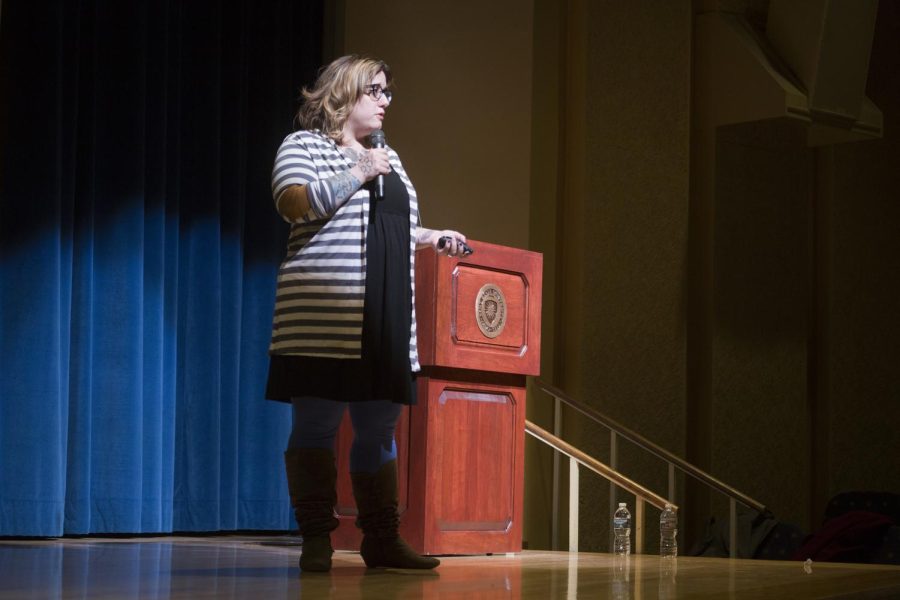Kent State hosts addiction discussion
Dr. Nicole Labor, associate medical director of addiction medicine for Summa Health Systems, speaks in the Kiva at the ‘Recovery Rocks: The Science Behind Addiction’ event on Thursday, Feb. 17, 2017.
February 17, 2017
In the light of the heroin epidemic across Ohio, Kent State hosted a talk Thursday led by Nicole Labor titled “Recovery Rocks: The Science Behind Addiction.”
Students packed the KIVA to listen to Labor, who specializes in addiction care at Summa Health System St. Thomas Hospital, as she spoke about the underlying reasons people become addicted.
According to Labor, all of these aspects are derived from a neurological perspective that focuses on the individual and their disease, not the drug they are abusing.
“Addiction is not a psychological illness,” Labor said. “There are psychological elements to it, but it is certainly not a moral failing. It is a neurological illness.”
The event focused on two major functions in the human brain: the frontal cortex and the midbrain. The frontal cortex represents one’s ethics, goals and rationalization. The midbrain is very primitive, meaning it does not weigh consequences or think about the future.
Labor listed marijuana, alcohol, heroin, crack, crystal meth and Xanax as the most common drugs that are usually abused.
Labor said it does not matter what kind of drug it is: Addiction is caused by over-dependence on dopamine.
Labor also spoke about how addiction distorts the dopamine levels in the brains of addicted individuals, who require far more dopamine in comparison to individuals who are not addicted.
“Addiction is a broken pleasure sense; it’s a dysfunctional rewards system,” Labor said. “We need that rewards system to survive, but when it gets dysfunctional, that’s when we have addiction.”
For Carolyn Good, a health education graduate student who attended the event, addiction is a personal trauma.
“I have addicts in my family,” Good said. “I have multiple alcoholics in my family, but they are all recovered so far.”
Erica Tannhof, a freshman special education major, attended the event because she wanted to learn more about addiction.
“I found it very interesting,” Tannhof said. “I’ve never dived into the world of addiction, as no one in my family has gone through anything like that. I wasn’t used to that kind of thing, but I wanted to find out more information.”
Although Labor said that addiction will never truly be defeated, there are ways to successfully minimize the devastating effects it can cause for individuals and their families.
Instead of making a drug that is temporarily popular illegal, Labor said she believes society has to stop focusing on the drug and start focusing on the addiction itself. Addiction will come back in different forms and will not go away, she said.
Labor said she advocates for society to change the way it views drugs and addiction, which involves recognizing how addiction is an actual disease and not representative of amoral values. Labor said she hopes that this will lead to a more progressive view of addiction and help stop the disease early on.
Tyler Haughn is the student health reporter, contact him at [email protected].

























